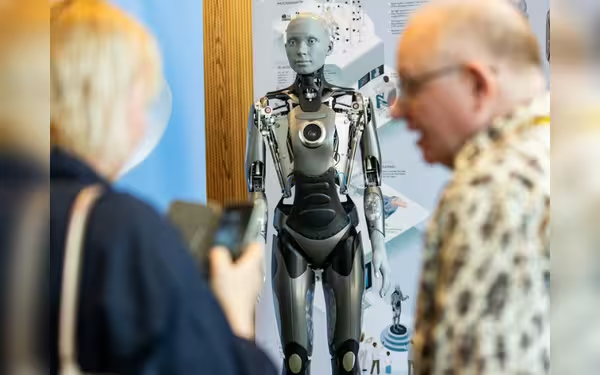Saturday, November 16, 2024 07:40 PM
AI Threatens Jobs of Women and Low-Skilled Workers
- AI poses job risks for women and low-skilled workers.
- Collaboration needed for upskilling and reskilling initiatives.
- New job roles will emerge requiring human creativity.
 Image Credits: tribune.com.pk
Image Credits: tribune.com.pkA study reveals AI is likely to replace women and low-skilled workers, highlighting the need for strategic workforce development.
In recent years, the rise of artificial intelligence (AI) has sparked discussions about its potential to transform various sectors, particularly the job market. A new study by the Inter-American Development Bank (IDB) highlights a concerning trend: women and low-skilled workers are more likely to be replaced by AI technologies. This revelation raises important questions about the future of work and the need for strategic planning to mitigate the impact of AI on vulnerable groups.
According to Eric Parrado, the chief economist at the IDB, the integration of AI into the workforce is not just a possibility; it is an impending reality. As machines become more capable of performing tasks traditionally done by humans, the risk of job displacement increases, especially for those in low-skilled positions. This shift could disproportionately affect women, who often occupy roles that are more susceptible to automation.
The study emphasizes the importance of developing a comprehensive plan to address the challenges posed by AI. It is crucial for governments, businesses, and educational institutions to collaborate in creating pathways for workers to transition into new roles that require different skills. Upskilling and reskilling initiatives will be vital in ensuring that the workforce is prepared for the changes ahead.
Moreover, the conversation around AI and employment should not only focus on the risks but also on the opportunities it presents. While some jobs may be lost, new roles will emerge that require human creativity, emotional intelligence, and complex problem-solving skills—areas where AI cannot easily compete. By embracing these changes and investing in education and training, society can harness the potential of AI to create a more dynamic and inclusive job market.
The impact of AI on the job market is a pressing issue that requires immediate attention. As we stand on the brink of this technological revolution, it is essential to prioritize the needs of those most at risk of displacement. By fostering a proactive approach to workforce development, we can ensure that the benefits of AI are shared equitably, paving the way for a future where technology and humanity can thrive together.













